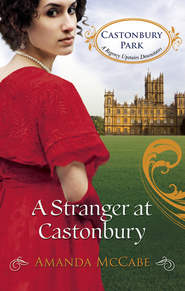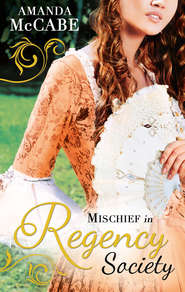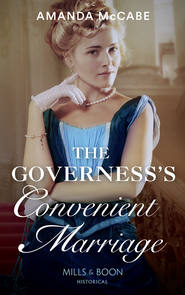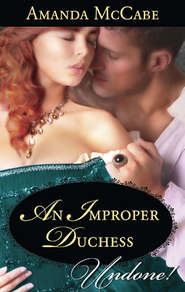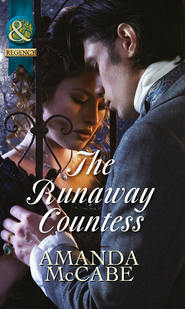По всем вопросам обращайтесь на: info@litportal.ru
(©) 2003-2024.
✖
Betrayed by His Kiss
Настройки чтения
Размер шрифта
Высота строк
Поля
‘And some stewed chicken with cinnamon,’ said Isabella, sitting down next to him. ‘You like cinnamon. Flavia is just finishing with it.’
‘I will go fetch it,’ Mena said and left them to return to the kitchen. The hum of voices resumed in there as Isabella pressed a cup of wine into her father’s hand. How she yearned to ask him about the letter, to discover what was happening with their Florence relations! But she knew full well it would never work to press him. Until her father had some food, some wine, emerged from his dream world of study, he would not even remember what she talked about.
‘How was your day?’ she asked, spooning out a portion of the pottage on to his plate. ‘Did you finish the new essay on the Aeneid?’
‘No, no, not yet. But I am close, I think. Very close. I must write to Fernando in Mantua. He has documents that will be of great use to me in this matter.’
‘Perhaps he would even travel here himself, then you could discuss it in person,’ Isabella said. ‘We have not seen him in many months.’
‘Hmm,’ was all her father said.
Mena returned with the chicken and they ate in silence as the night shadows lengthened and the stars emerged above them. It was a clear, cool evening, the moon a mere silvery sliver on the horizon. Gradually, Isabella felt the tension of the day easing from her shoulders, sliding away on wine and serene silence. When the dessert of rice cooked in honey and almond milk was consumed, the lanterns strung high in the trees were lit and Isabella and her father were left alone. The conversation in the kitchen slowed, until there was only the distant song of the nightingale.
Isabella leaned her chin in her hand and closed her eyes, envisioning the sketch of young Veronica. There was still something not quite right about the line of the cheek, the flow of the hair, something she could not quite decipher...
‘Perhaps I shall invite Fernando to visit,’ her father suddenly said.
Isabella’s eyes flew open. ‘What? Father, I mentioned that above an hour ago!’
Her father just smiled. ‘Ah, Bella, you think I do not listen to you. I do. It simply takes time for me to absorb your words.’
Isabella laughed and reached out to pour more wine into their goblets. ‘That is very good to know, Father. And, yes, it will be a fine thing to have your friend here for a visit. He could help you so much with your studies. I fear you must find it a lonely task, with none to share your interests.’
‘I enjoy the quiet,’ he answered and took a slow sip of his wine. ‘After the great clamour at university so long ago, I found that only peace is conducive to true study. Do you not find it so, Bella, in your own work?’
Isabella frowned, puzzled. She did not know her father even realized she had ‘work’. ‘My art?’
‘Hmm, yes. Oh, but then art is different from history. I deal with men who are dead, events that are dust. Art is—well, it is life. How can you progress here, when there is nothing to inspire you? No one to help you?’
Isabella was utterly astonished. Every evening, winter or summer, rain or star-shine, she and her father supped together here at this table. Yet these were the greatest number of words they had shared in a long while, the most true understanding he had ever shown her. He loved her, she knew that. He just lived so much in his own mind. ‘I am content,’ she said.
‘Content. But not happy.’ Her father slowly shook his head, his wild hair drooping over his wrinkled brow. ‘Bella, I forget how young you are. This is the life I want, the life I have chosen. You deserve the chance to choose, as well. To look beyond our home and perhaps find a new way. A fine husband. A wider world.’ He sighed. ‘You are really so much like your mother.’
‘Father, what has brought this on?’ Isabella asked, bewildered. ‘Are we not content here together? Are you...?’ A horrible thought struck her. ‘Are you ill?’
He laughed. ‘Not at all. Just the aches and pains of age. I merely had a reminder of the outside world today. A reminder long overdue.’ He reached inside his robe and withdrew a small scroll. The blue wax seal was broken.
Ah, yes. The letter from Caterina, the letter that caused such a furore of curiosity in their house. ‘What is that, Father?’
‘A letter from your cousin Caterina Strozzi. She writes to enquire after you.’ He unrolled the scroll, flattening it on the table. ‘She has shown an interest in you before, but, well, with relations such as they were between myself and her father, how useless I was to them after your mother died—I thought it better to leave things alone.’
‘What has changed?’ Isabella asked.
‘Caterina writes that she knows of your great interest in art, an interest that the two of you share. She says she has not been well of late and she would like a companion to help her, to be her friend. Someone she could trust, a kinswoman. She asks if you will come to live with her in Florence. For a time, anyway.’
Live in Florence? Isabella’s stomach seized and fluttered with a sudden, icy rush of joy and fear. She turned away, pressing her hands hard to that ache. Could this be real? It was what she longed for, prayed for! A wider world, a journey to a place of art and beauty and culture, where she would no longer be alone. Her greatest wish, held out to her now, a gleaming jewel she had only to reach out for.
And yet—and yet...
This was her home, all she knew. What if her bright dream tarnished, turned to ashes in the harsh glare of real life? And what if the nightmares she’d had when she was younger came to torment her in the new house? They hadn’t visited her in a long time, but when she was tired or worried, the visions came back. What would she do then?
‘It is entirely up to you, Bella,’ her father said quietly. ‘Florence was poison for me, but it could be good for you. You are so smart, so lovely. But if you do not wish to go, that is very well, too.’
‘Who would take care of you, Father?’ she whispered, still surrounded by that buzzing brilliance of unreality.
‘Why, the servants, of course! You could take Mena with you, but the rest of us will rub along well enough. My needs are few. And I will invite some of those friends to visit. It is past time I did that anyway.’ He reached out suddenly and took her hand, his fingers gnarled, ink-stained, gentle. ‘I cannot stand in your way any longer, Bella. You must find your own path now.’
Isabella curled her hand around his tightly. ‘Is my path in Florence?’
He nodded. ‘I think it may be.’
She drew in a deep, steadying breath. All her trepidation, her wild fears, unspooled like a skein of wool and floated free. This was right. This was her destiny, what she waited for all her nineteen years. She laughed aloud, her heart alight with all the shimmering possibilities of the future.
‘Very well, then!’ she cried. ‘I will go to Florence.’
* * *
‘There is the sea and who will drain it dry? Precious as silver, inexhaustible, ever-new, it breeds the more we reap it—tides on tides of crimson dye our robes blood-red...’
Orlando Landucci stared out of the window into the Florence dusk, barely hearing the soft voice of Lucretia, his former mistress and now his friend, as she read from the Oresteia. Evening was gathering fast, always the most beautiful time in the city. A moment when the stone towers turned to spun gold in the torchlight, when ordinary faces turned mysterious and beautiful. All the filth and ugliness were hidden away in the darkness. And so were wicked deeds.
He could hide, too, could forget, even if it was only for few hours. He loved the night.
But tonight the veil was very thin and he couldn’t lose himself in the illicit pleasures of Florence as he usually did. Trouble was bubbling just below Florence’s serene, elegant surface. A tension that simmered and crackled, soon to snap and release the winged evils of Pandora’s box into the world. None of them could deceive themselves much longer. Not even the great Medici and their allies.
Soon Orlando would also have his chance. He wouldn’t have to hide in the night any longer.
As the twilight slipped into black darkness, the fine cobblestone square below Lucretia’s window transformed. Respectable families retreated behind the stout walls of their palazzi, closing their shutters. Merchants shut their shops in the mercato and beggars took refuge in church doorways.
Yet Florence was far from forsaken. Soon the calles would fill with new crowds, young men in brightly striped hose and pearl-sewn doublets, plumed velvet caps on their curled hair. They sang bawdy songs as they passed wine flasks between them, waiting for the courtesans in their crimson-and-yellow satins to emerge from their houses. Music could be heard in the distance, flutes and tambours, a merry dance that grew louder and louder as the night became darker.
Suddenly, as he watched lazily, a large group tumbled into the square, led by the musicians. At their head was the greatest rogue in all Florence, Giuliano de Medici, the handsome younger brother of the all-powerful Lorenzo, followed by his ever-present friends.
They had obviously started on the strong wine a long time before, for they stumbled on the paving stones, laughing uproariously as one of them tumbled to his knees. Their voices, raised in out-of-tune song, floated up to Orlando’s window. They spun and flowed in a stained-glass kaleidoscope of bright greens, blues, reds, waving plumes and flashing jewels. Like a painting come to life.
Orlando eased the window open an inch, letting in the music and laughter, borne on a cool, perfume-scented breeze that seemed to spread their merriment to every corner of the city. There was no danger yet to their merriment, no sadness, no dread. Only their youthful, privileged certainty that all would be well for them, that beauty and merriment would always prevail.
Orlando had once been just like them. So sure nothing could touch the brightness of his life. Now he knew how very false that was. How delicate, like a puff of dust blown away by a hot summer wind. They soon would know that, too.
He saw Eleanora Melozzi hung on Giuliano’s velvet-clad arm, the most expensive courtesan in all Florence. The torchlight glowed on the loose fall of her golden hair as she turned to laugh with the couple who tripped behind them.
The red-haired woman who was Eleanora’s friend held on to a tall, fair-haired man’s arm, her jewelled hand curled tight and possessive around his velvet sleeve. He threw back his head in a burst of raucous laughter, a ray of flickering light falling over his face.
It was Matteo Strozzi.
Orlando’s fist tightened on the edge of the window until the glass bit into his skin. He felt it not at all. He could only see Strozzi, the vile bastard. The man he had vowed to destroy.
Suddenly, through his crimson haze of anger, he felt a soft touch on his sleeve, drawing his hand down. Startled out of his anger, he looked down to see that Lucretia had left her book and come to his side. She stared up at him, her green-gold eyes wide with concern.







